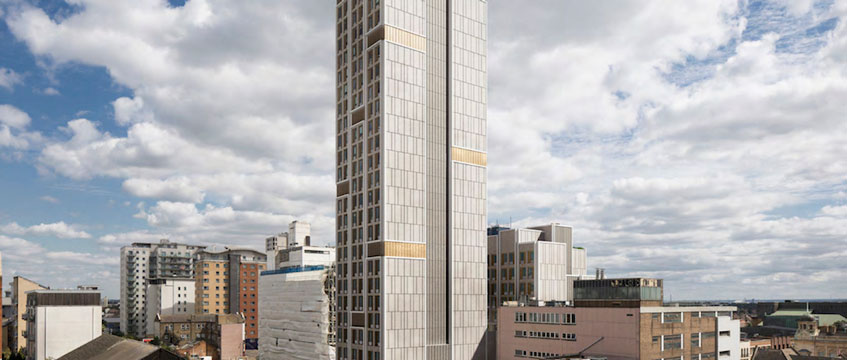London’s co-living sector has suffered a fresh blow as another site hits the market after planning consent was not achieved.
Knight Frank are now marketing the development site at 187-191 High Road, Ilford, IG1, a town centre development opportunity.
Plans were submitted by Aurora Real Estate with development partners Fifth State in October 2017 for a 26-storey tower, with 320 co-living units. In its stage 1 report, the GLA said the proposed mix of co-living was “supported in principal.”
However hurdles remained over affordable housing, urban design and minimum space standards, which needed further clarification and amendments, according to City Hall planners.
Co-living: will developers achieve the impossible?
Appointed agent Knight Frank says the site has received positive pre-application responses from Redbridge planners for a 20 storey residential-led scheme, with the site currently let to Argos until July 2021.
Another co-living proposal to see the same fate was Apeiron Capital’s Stratford High Street scheme. It submitted an EIA application back in August with plans for around 360 co-living units. However, it was subsequently put on the market in March, through JLL.
The only co-living scheme to be successful at receiving planning consent in London is the Collective’s Newham scheme, also on Stratford High Street. However, City Hall and the GLA has still yet to formally approve it, more than a year after the LLDC gave the green light at local authority level.
Other co-living projects that have weaved through the planning system include the Collective’s Old Oak Common and Get Living’s Lewisham Gateway. These have been approved through S73, minor material amendments, or change of use applications, with sui generis and co-living uses taking over student or hotel uses.
Mixed signals
The draft London Plan essentially gave the nod to the fledgling co-living sector, saying there would be no minimum space standards for “large-scale purpose-built shared living”. At the same time it said “it is not considered suitable as a form of affordable housing” and therefore a financial contribution would be required.
However, in the GLA’s stage 1 report regarding the Aurora and Fifth State scheme in Ilford, it said: “While it is accepted that the residential space standards are not strictly applicable to the type of housing proposed, the applicant has been strongly encouraged to meet them wherever possible throughout pre-application discussions.”
The draft London Plan also says co-living units should be “appropriately sized to be comfortable and functional for a tenant’s needs”; a rather subjective notion.
Regarding this, the stage 1 report said: “GLA officers are firmly of the view that the units do not provide comfortable and functional accommodation and significant concerns are raised with regards to the overall liveability of the accommodation.”
It went on to say communal kitchen-living spaces should be provided on each floor and increased in size, in order to “provide a higher quality internal living environment”.
Co-working giant WeWork also entered the co-living market recently, submitting a change of use plan for its Old Street roundabout scheme, switching office space to serviced apartments. The scheme, which sits on the top floors of a WeWork currently under construction, will provide a short, 90-day stay, co-living product.
To send feedback e-mail paul.wellman@egi.co.uk or tweet @paulwellman eg or @estatesgazette











